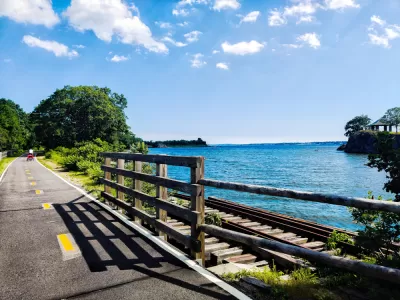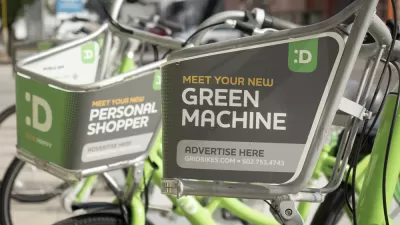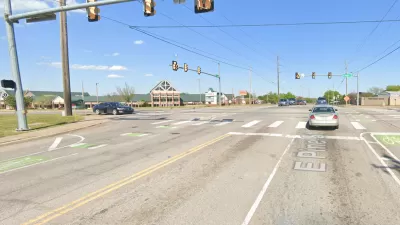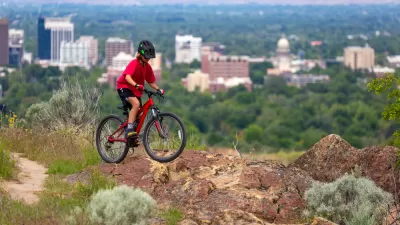History repeats itself with the political controversies created by bike lanes.

An article by Brian Amaral commences with a long list of complaints and predictions of doom lobbed against the East Bay Bike Path—linking providence to Bristol in Rhode Island—can when it was originally proposed 1983.
Despite the vehement protestations of opponents back in the early '80s, the bike path is now one of the state's most treasure infrastructure gems, "so wildly popular that one of the main concerns is how crowded it can get. Bristol now touts itself as the safest community in the state, and as crime has gone down overall, Barrington’s property values have only gone up."
Despite that track record, bike infrastructure remains controversial in Rhode Island, reports Amaral.
Today, business owners and institutions in Providence are raising concerns about a recently completed two-way protected bike lane on South Water Street. A bike lane on Eaton Street was torn up in 2019 after opposition from neighbors and the local councilwoman. A pilot program for a protected bike lane on First Street in East Providence was cut short after the City Council voted to do away with it over concerns about a confusing traffic pattern.
While acknowledging the differences between the bike lane projects of the 1980s and the present day's proposals, there are still comparisons to be made. Amaral focuses first on the First Street bike path project.
In an Oct. 1 letter to RIDOT published by the Providence Journal and signed by representatives of RISD, the food hall Plant City, Brown University, law firms, the Jewelry District Association, and others, opponents say they’re not opposed to a bike lane, just one that cuts out a lane of travel on South Water Street. (There’s enough room between the street and the Providence River for a bike lane, they argue.) They’ve said the city’s traffic studies are flawed and have asked the state Department of Transportation to intervene.
The article also compares the lessons of the East Bay Bike Path the controversies surrounding the South Water Street protected bike lane.
FULL STORY: A battle over bike paths pits environmentalism and infrastructure against public safety and traffic problems

Maui's Vacation Rental Debate Turns Ugly
Verbal attacks, misinformation campaigns and fistfights plague a high-stakes debate to convert thousands of vacation rentals into long-term housing.

Planetizen Federal Action Tracker
A weekly monitor of how Trump’s orders and actions are impacting planners and planning in America.

San Francisco Suspends Traffic Calming Amidst Record Deaths
Citing “a challenging fiscal landscape,” the city will cease the program on the heels of 42 traffic deaths, including 24 pedestrians.

Defunct Pittsburgh Power Plant to Become Residential Tower
A decommissioned steam heat plant will be redeveloped into almost 100 affordable housing units.

Trump Prompts Restructuring of Transportation Research Board in “Unprecedented Overreach”
The TRB has eliminated more than half of its committees including those focused on climate, equity, and cities.

Amtrak Rolls Out New Orleans to Alabama “Mardi Gras” Train
The new service will operate morning and evening departures between Mobile and New Orleans.
Urban Design for Planners 1: Software Tools
This six-course series explores essential urban design concepts using open source software and equips planners with the tools they need to participate fully in the urban design process.
Planning for Universal Design
Learn the tools for implementing Universal Design in planning regulations.
Heyer Gruel & Associates PA
JM Goldson LLC
Custer County Colorado
City of Camden Redevelopment Agency
City of Astoria
Transportation Research & Education Center (TREC) at Portland State University
Jefferson Parish Government
Camden Redevelopment Agency
City of Claremont





























